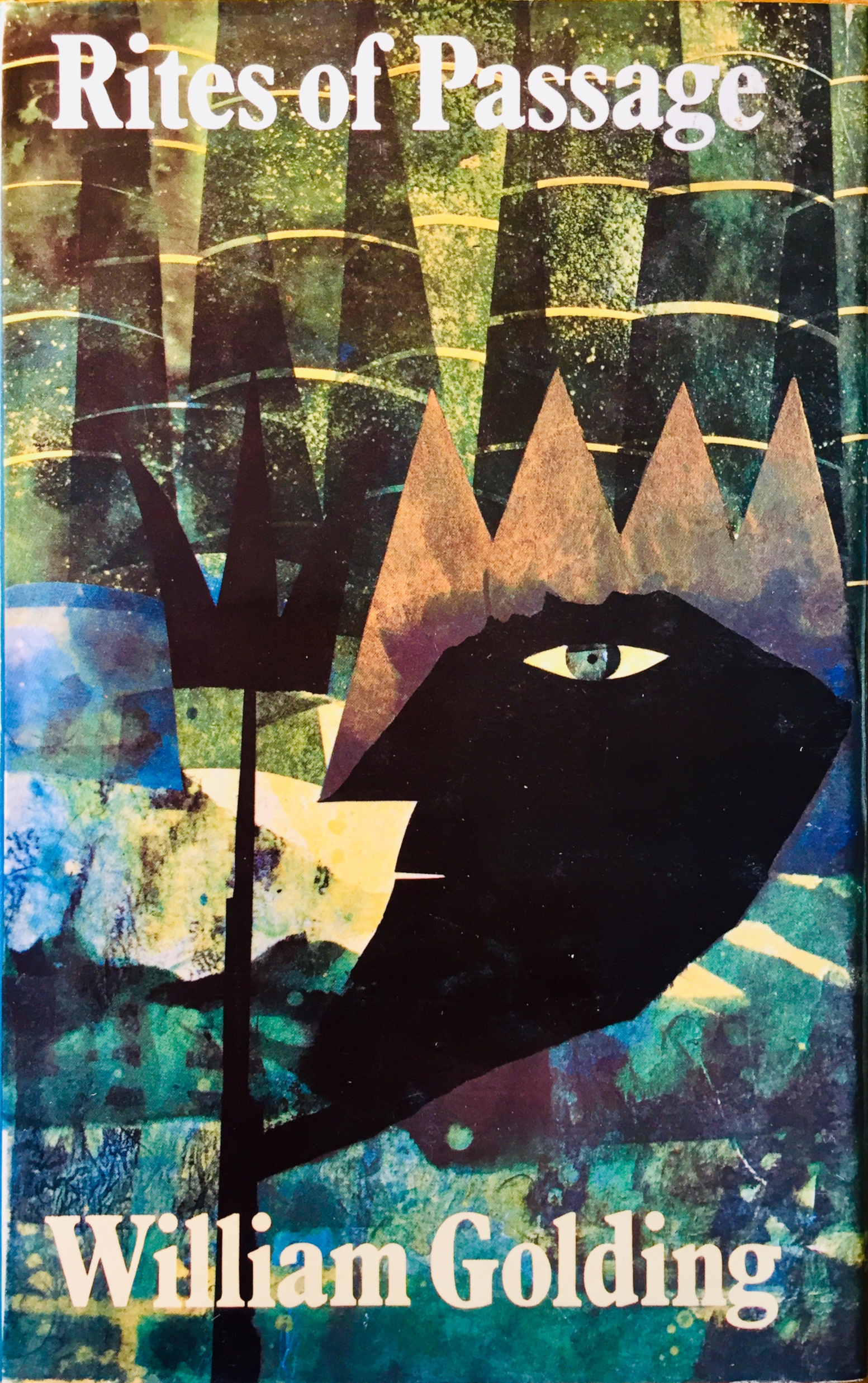Hardcover, 278 Seiten
Sprache: English
Am 3. Februar 1980 von Faber & Faber veröffentlicht.

Hardcover, 278 Seiten
Sprache: English
Am 3. Februar 1980 von Faber & Faber veröffentlicht.
One year after the publication of the highly praised Darkness Visible, his first novel in twelve years, William Golding has brought forth a brilliant new novel, Rites of Passage—entirely different, and equally remarkable.
An aged ship of the line in the Napoleonic era is making her way from England to the Antipodes, carrying seamen, soldiers, emigrants, cargo, and a few ladies and gentlemen. Among the latter is the observant young Mr. Edmund Talbot, who has a good opinion of himself and may well be right. Edmund records the strange events of this ocean journey for his patron in England, a member of the nobility, using the elegant and witty style of the period and occasionally "speaking Tarpaulin," the language of the sea.
Edmund observes the ceremonies that mark a progress through life in the stratified society-in-miniature on board the ship, especially when it crosses the line. …
One year after the publication of the highly praised Darkness Visible, his first novel in twelve years, William Golding has brought forth a brilliant new novel, Rites of Passage—entirely different, and equally remarkable.
An aged ship of the line in the Napoleonic era is making her way from England to the Antipodes, carrying seamen, soldiers, emigrants, cargo, and a few ladies and gentlemen. Among the latter is the observant young Mr. Edmund Talbot, who has a good opinion of himself and may well be right. Edmund records the strange events of this ocean journey for his patron in England, a member of the nobility, using the elegant and witty style of the period and occasionally "speaking Tarpaulin," the language of the sea.
Edmund observes the ceremonies that mark a progress through life in the stratified society-in-miniature on board the ship, especially when it crosses the line. Death, birth, betrothal, betrayal, abortive court-martial, disappearance at sea, funeral—each turn of events leads the reader to the startling truth of the voyage. Edmund's acute observations are matched by sheer misjudgments of the odd array of passengers: the subtly lurid Zenobia Brocklebank; the sinister and clergy-hating Captain Anderson; the opinionated rationalist, Mr. Prettiman; the ridiculous and tragic parson, Rev. Robert James Colley; the prim and proper Miss Granham; the impervious, experienced, and finally invisible servant, Wheeler; the officers, Summers, Cumbershum, and Deverel.
Among the crew the foretopman is hand-some, Budd-like Billy Rogers, who inspires in the Reverend Colley a keen desire to save Billy's soul, with disastrous results. In the subsequent court at sea, this Billy is too shrewd a seaman to fall into the trap: when he senses that the noose might fall around his neck, he asks the one question calculated to stop proceedings and set him and everyone else free.
Rites of Passage is an extraordinary tour de force—a major work from one of our major writers.